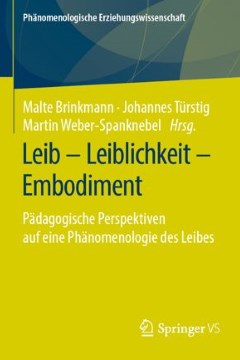Repository | Book | Chapter

(2019) Leib – Leiblichkeit – Embodiment, Dordrecht, Springer.
Upbringing and neuroscience
embodied theory as a theoretical bridge between cognitive neuroscience and the experience of being a parent
Joyce Leysen
pp. 249-263
Popularized neurodiscourse sharpens the 'scientization of parenting". It prescribes parents which parenting tasks ought to be done based upon results of neurocognitive research, turning the parental figure into a follower of expert driven neuroguidelines. Neuroparenting is illustrative hereof. Since neuroscientific knowledge has become integral to the ways in which people have come to think of and shape parenting, the question how the increasing presence of popularized neurodiscourse affects parents' experience in raising their children (Erziehung) seems pressing. Critical arguments have been brought forward from sociological and philosophical points of view. A critical pedagogical stance, however, seems missing. This chapter addresses this lacuna and proposes Embodied Theory to rethink the one-directional relation between cognitive neuroscience and the experience of being a parent, and its assumption of parents' "unknowing" cognition. In light of the theoretical framework on upbringing by Arendt (1954/2006) and Van Manen (1982), Embodied Theory seems promising. Its conceptualization of cognition holds the possibility to point at the historical, cultural and social embeddedness of parents' cognition, situating it in a broader know-how context. Secondly, it can bring in parents' embodied action in lived and meaningful experiences with children. As such, Embodied Theory serves as a reminder of the fact that parents always holistically enact the upbringing of their children, which somehow seems to be forgotten in today's popularized neurodiscourse.
Publication details
DOI: 10.1007/978-3-658-25517-6_13
Full citation:
Leysen, J. (2019)., Upbringing and neuroscience: embodied theory as a theoretical bridge between cognitive neuroscience and the experience of being a parent, in M. Brinkmann, J. Türstig & M. Weber-Spanknebel (eds.), Leib – Leiblichkeit – Embodiment, Dordrecht, Springer, pp. 249-263.
This document is unfortunately not available for download at the moment.


